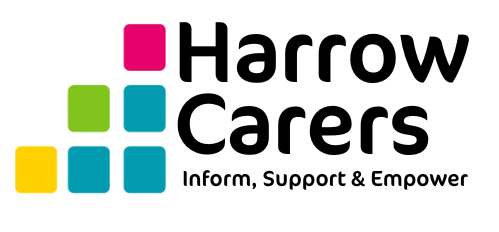Caring for a terminally ill child or a spouse or an elderly member of your family towards the end of their life can be heart-breaking. Witnessing your loved one suffer, day in and day out, and needing your support to perform mundane tasks such as walking, eating, bathing or going to the toilet is not only emotionally draining and stressful but can lead to feelings of anger, resentment and frustration.
Although for many carers, caring can have positive and rewarding aspects, there are lots of reasons why caring can also leave you needing support.
If you experience a sense of helplessness and futility at your inability to improve your loved one’s quality of life, don’t despair. You are not alone. We work with carers across London who feel exactly like you; and many undergo depression and their own emotional upheavals in their efforts to come to terms with the situation.
There has been significant recognition in the last few years of the need for increasing support for carers across the country. And along with government agencies and other charities, we have been working hard to improve the lives of carers by supporting them find flexible employment that works around their carer duties. The ability to work, earn money and build on employable skills has proven to work wonders on the confidence and self-esteem of carers, allowing them to do something for themselves.
Family carers are, as the name suggests, family members who care for loved ones who are unable to care for themselves due to physical or mental impairments or simply due to age. Family carers are unpaid and take on caring responsibilities out of feelings of love, obligation and guilt. As the caring role is, in most cases, round the clock, carers usually tend to give up school/university and jobs or careers.
In addition to caring for an unwell or elderly relative, family carers may have their own children and families to look after putting further pressure on their time and mental well-being.
To put things in perspective, we thought we’d share some statistics with you. (Carers Trust)
- There are around seven million carers in the UK – that is one in ten people. This is rising.
- Out of the UK’s carers, 42% of carers are men and 58% are women.
- 68% of young carers are bullied in schools.
- Only half of young carers have a person in school who recognises that they are a carer and helps them.
- Based on Census figures there are estimated to be at least 376,000 young adult carers in the UK aged 16–25.
- One in five people aged 50–64 are carers in the UK.
- 65% of older carers (aged 60–94) have long-term health problems or a disability themselves.
These are startling figures to say the least.
We must not only provide practical support in the form of easy access to information on grants and benefits, helplines they can call when they need information and information on charities and voluntary organisations that can help, but also mental and emotional support in the form of access to local support groups and mental health professionals.
So, what support is out there for family carers?
There are several local carer support services across the UK. You can find the closest one to you by visiting the Carers Trust website and filling in your postcode.
Harrow Carers (link to website) specifically looks after the needs of carers across the London Borough of Harrow.
Some of the services provided by Harrow Carers to support family carers are:
- Health and well-being through courses and workshops, complementary therapies and support groups.
- Mental Health Services through one-to one support and psychological information sessions on topics such as depression, OCD, autism, bipolar disorder and others. Our well-being courses are extremely popular designed to teach carers coping strategies and boost psychological wellbeing. We also have informal drop-in sessions for carers to come in and have a chat with someone who understands them.
- Support for older carers (65+) through improving the quality of life for older carers by addressing their social, financial and practical needs
- Young person’s support services – this is for young people between the ages of 11-17 who care for their disabled of mentally challenged parents, siblings or other relatives. Most of our young carers register with us for different reason, with differing personal circumstances and diverse caring roles e.g. cooking, cleaning, giving medication, emotional support).
- Advocacy support by protecting the rights of vulnerable carers.
- Benefits advice
- Counselling helping carers talk through and find ways to cope with their emotional and personal issues.
- Respite services, providing regular breaks to carers.
- Novus Homeshare – this is a scheme that matches younger people, looking for affordable accommodation and willing to provide help at home, with people who have a spare room and need extra support around the house.
- Volunteering opportunities
- Working for Carers We are a London-wide project that supports unpaid carers, aged 25 or over, to move closer to employment. The project is led by Carers Trust and delivered by its network of 24 partners across London.
- Macmillan Cancer Care Service – Harrow Carers are working in partnership with Macmillan Cancer Support to specifically address the needs of Cancer carers in Harrow.
At Working for Carers, we take great pride in being able to provide a service to family carers that will improve their quality of life. Carers across the UK provide an invaluable service. Recognition of their contribution to society and the provision of practical and useful support is the least we can do as a society.
If you are a family carer, please do not hesitate to contact us (tel number) and we’ll help you either support your employment goals or direct you to the person most equipped to support your needs.

